6 Bingeable Slice-of-life K-dramas
MY LIBERATION NOTES | WHEN THE CAMELIA BLOOMS | LIKE FLOWERS IN THE SAND | RACKET BOYS | OUR BLUES | HOMETOWN CHA-CHA-CHA
After my last series of newsletters — which were not pleasant to write (much less to read, I’m sure) — I thought today was as good time as any to highlight a few of my favorite slice-of-life K-dramas. These shows focus on ordinary characters going about their business, who often insert themselves into each others’ lives in a good (and sometimes annoying) way. These shows are funny, touching, and highly bingeable:
° Hometown Cha-Cha-Cha ☆☆☆
° Like Flowers in the Sand ☆☆☆
° My Liberation Notes ☆☆☆
° Our Blues ☆☆☆☆
° Racket Boys ☆☆☆
° When the Camelia Blooms ☆☆☆½
As always, my ratings are based on a ☆☆☆☆ system.
“My Liberation Notes”
나의 해방일지
☆☆☆☆
Yeom Chang-hee (played by Lee Min-ki)
Yeom Mi-jung (played by Kim Ji-won)
Mr. Goo (played by Son Seok-koo)
Yeom Ki-jung (played by Lee El)
↑Note: Korean names denote the surname followed by the given name.
This series is beautifully executed in presenting a slice of life that doesn’t offer a fairy-tale ending — or finite solutions to ease the characters’ lives. Finding love doesn’t absolve your debts or ease your insecurities. But what this K-drama does do is allow for growth. Who the characters are at the start of the series is not who they are by the finale, and that’s a good thing.
The Yeoms are broken siblings who blame their dreary lives on their circumstances. Instead of being based out of Seoul like their office colleagues, they reside in the countryside with their parents. Which means their nights out are dictated by the final subway run or splurging on a cab together. Though they are in their mid- to late-30s, they don’t have a car to share, either. And their father won’t allow them to purchase one.
Not that they would have the money to buy an automobile anyhow. Chang-hee made some poor financial choices, while his youngest sister Mi-jung secretly took out a loan for thousands of dollars to help her then boyfriend, who dumped her without paying her back. I’m not sure where Ki-jung’s money went to, but she has just enough to go out with friends and primp for dates.
Their father runs a carpentry and sink business that caters to the struggling local community. Along with his wife, they also run a farm that the kids help with during the weekend. His best worker, though, is a quiet man who he hired without references. Mr. Goo works long hours, never complains and is as taciturn as Mr. Yeom. When they all share meals at the end of a long day, no one says anything because that’s how the patriarch prefers it.
Mr. Goo is closemouthed in general and prefers to keep to himself. He is a functioning alcoholic who is gossiped about, but doesn’t care what others have to say. When the youngest daughter decides that she wants someone to adore her, she asks him to be that person. It’s less of a romantic overture than a pact by two desperate people who long for comfort. (She actually uses the word 추앙해, which is translated in the subtitles as worship, which sounds almost cult-like. I believe the more correct translation is a combination of adore and respect.)
There is a scene where Mr. Goo asks Mi-jung’s father for her phone number. Though he knows why his employee is asking for it, he gives it to him. There is no judgment on his part, even though it’s obvious that Mr. Goo is suffering from substance abuse. What’s the likelihood that any father would want his precious daughter to date someone who clearly is harboring some serious demons? But with that said, there’s also a sector of parents who believe the worst fate for their unmarried daughter is to remain … unmarried.
As for eldest sister Ki-jung, she falls in love with a man whose daughter hates her for a variety of reasons — the most significant being that the child overheard Ki-jung telling her friends how much she disliked divorced men with children, unaware that she was seated next to such a family.
The show gets its title from a club Mi-jung forms at work, not because she wants to, but because the company pretty much forces all its employees to socialize with each other. The three lone members discuss mundane things about their lives and what they need to do to liberate themselves from their issues. They at first consider the club a chore, until they realize how precious their own thoughts and unresolved wishes are.
Airdates: Sixteen hour-long episodes aired from April 9 to May 29, 2022 on JTBC. (I watched this on Netflix.)
Spoiler Alert: After their mother unexpectedly dies, the children learn how difficult her life was, not only working alongside her husband, but quietly toiling away behind the scenes preparing meals, cleaning the house, doing the laundry — all the things that family members expect to be done, but don’t really think about how much time and effort it takes to do these chores day after day.
Mi-jung and Mr. Goo brought out the best in each other. But his life is a mess and it seems like no matter how they work through things, he will (unintentionally) drag her down — and that’s a scary process to watch, much less go through.
Mr. Goo eventually returns to his gangster life, where he dresses better and has minions to do his bidding. But after growing increasingly unhappy, he contacts Mi-jung and the two pick up where they left off. While the series hints that he will take a stab at giving up drinking, I was left wondering how having him back in her life would affect Mi-jung. This is a very sexy and attractive man who — when he left the countryside for his former life — changed his phone number so that she couldn’t contact him. Yes, he did what he thought was best for her. But in many ways, she had already liberated herself from him and was living a fulfilling life as her own person when he returned.
© 2024 JAE-HA KIM | All Rights Reserved
“Hometown Cha-Cha-Cha”
갯마을 차차차
☆☆☆☆
Yoon Hye-Jin (played by Shin Min-A)
Hong Du-Sik (played by Kim Seon-Ho)
Ji Seong-Hyun (played by Lee Sang-Yi)
↑Note: Korean names denote the surname followed by the given name.
“Hometown Cha-Cha-Cha” is one of those slow-moving K-dramas that makes viewers wish they had the same kind of relationship as the characters do — not just with love interests, but with their friends. It fits right in with other series like “Racket Boys,” “When the Weather is Fine” and “Crash Landing on You,” where the close-knit neighbors were each others’ families and best friends. They shared each other’s successes over meals together. And they consoled one another when there were hardships to overcome.
When Hye-Jin and Du-Sik meet, they are an unlikely couple. She’s a big-wig dentist from Seoul who recently lost her job (because she advocated for her patients). He is Gongjin’s jack of all trades, who happens to have a degree from Seoul National University (and some tragic memories that he refuses to share). At first, he treats her coldly. But, of course, the two will find their differences aren’t insurmountable and that their bickering (and inability to stay away from each other) is a sign of their attraction.
As I mentioned earlier, the storyline moves along at a slow pace, but it includes an interesting array of townspeople and their backstories. There’s also the inclusion of a gay character, who doesn’t reveal their sexuality early on. But their preference was hinted at throughout the series. The character was treated respectfully, rather than as a freak attraction as in some K-dramas (“Strong Woman Do Bong Soon“).
Loss was a recurring theme throughout the series. The loss of a child, income, partner, parents, dreams, money … In a way, these fractured elements of their lives are what held the townspeople together.
Airdates: Sixteen 75-minute episodes aired on tvN from August 28 to October 17, 2021. (I watched this on Netflix.)
Spoiler Alert: After college, Du-Sik was working in finance for a big Seoul firm. One of the security guards asked him for investment advice. Duk-Sik suggested he start out slowly and to not put all his money into anything. But the guard, who didn’t know much about stocks or bonds, did exactly the opposite and lost all his savings, as well as his family’s home. The guard attempted suicide, but survived and was hospitalized. Feeling responsible, Du-Sik was about to head to the hospital to visit the security guard, but his boss — who was an older brother figure, as well as his best friend — insisted on driving him. When they get into a car accident, Du-Sik survives, but his friend dies.
Before he returned to Gongjin, he sold everything he had and gave it to the security guard and his family.
The gay character is a woman, who re-enters the life of a divorced couple. While the man still harbors a crush for this woman, it turns out she has always been in love with his ex-wife.
The ending is satisfyingly simple. Hye-Jin and Du-Sik vow to get married and have two children eventually. And they will continue to live in Gongjin.
© 2024 JAE-HA KIM | All Rights Reserved
“Like Flowers in Sand”
모래에도 꽃이 핀다
☆☆☆☆
Kim Baek-doo (played by Jang Dong-yoon)
Oh Yoo-kyung (played by Lee Ju-myoung)
↑Note: Korean names denote the surname followed by the given name.
From my Teen Vogue article on K-dramas with sports themes:
A mystery thriller as much as it is a wrestling saga, Like Flowers in Sand is set in a small town where everyone is obsessed with ssireum, traditional Korean wrestling.
Once a child prodigy in the sport, Baek-doo (Jang Dong-yoon) is the family’s failure who hasn’t lived up to his potential. Now in his early 30s, he has to decide whether to retire — as he promised in a drunken stupor — or try again for a win that continues to elude him.
Meanwhile, people are being killed in this sleepy town. Even more disturbing to Baek-doo is a woman (Lee Ju-myoung) who refuses to acknowledge that they grew up together.
This series thrives on Jang’s earnest likeability. He creates a man-child who is believable even in the most out-there possibilities.
Olympics: While ssireum specifically isn’t an Olympic sport, Koreans are big fans of wrestling. Kwon Sim-ho became a national hero in 2000 after becoming the only South Korean wrestler to win two gold Olympic medals. His were in back-to-back Games.)
Airdates: Twelve hour-long episodes aired from December 20, 2023 to January 31, 2024 on ENA. (I watched this show on Netflix.)
© 2024 JAE-HA KIM | All Rights Reserved
“When the Camellia Blooms”
동백꽃 필 무렵
☆☆☆½
Dong Baek (played by Gong Hyo-Jin)
Hwang Yong-Sik (played by Kang Ha-Neul)
↑Note: Korean names denote the surname followed by the given name.
“When the Camellia Blooms” starts off with so many things happening at once that it’s initially difficult to focus on all the different story arcs: a serial killer, smalltown pettiness, marital issues and the possibility of romance. But as the series progressed, each consecutive episode found its focus and finished with a sweet and satisfying finale that felt true to the characters.
There is death and sadness dotted throughout the series. But at its core, “Camellia” is a story of love — not just between a man and a woman, but between parents and their children.
(This character chart (via kanghaneul.org) is pretty helpful in keeping track of who’s who.)
The series starts off by introducing us to the quirky residents of (the fictional town) Ongsan. They are a closely knit community where the women are the de facto leaders. Yes, the politicians and police officers are all men. But it’s the women who own and run the storefront shops and keep the money flowing through the town. And Ongsan’s most powerful and respected citizen is a female attorney (Ja Yeong), whose biggest liability is her immature optometrist husband (Gyu-Tae).
These women also wield the ability to welcome or ostracize newcomers.
Enter Dong Baek, a single mom with a precocious seven-year-old son, Pil-gu (Kim Kang-hoon). All the men are as entranced with her as the women are suspicious. Because she has never been married, rumors circulate that she may have been a prostitute or a bar girl. It doesn’t help her cause that rather than operating a cafe or a diner, her business is a bar called Camellia. Why didn’t she choose something more respectable for her business? Because when you’re impoverished, you don’t have the luxury of making choices and have to accept what you can do with the limited resources that you have. Serving beer and small snacks is doable. Employing a staff of cooks and waiters to open a restaurant isn’t, not for Dong Baek anyhow.
But none of this bothers Yong-Sik, a police officer better known for his brawn than his brain. The relationship between the couple moves along at a snail’s pace and is blocked by everything and everyone. But Yong-Sik’s love and admiration for Dong Baek never falters and she allows herself to believe that she is worthy and deserving of love and a less complicated life.
But when people helpfully point out that no good family would welcome her as an in law, she agrees. She has grown so accustomed to being told she is nothing that she doesn’t have the confidence to tell people to go to hell.
Their romance is incredibly sweet, but the series offers so much more than a second lead syndrome (and there is one, though tepid as it is). More compelling is the depiction of child abandonment and how that impacts the children decades after the trauma of being left behind. Dong Baek’s mother left her at an orphanage when she was seven. Pil-gu never knew his father and pretended he didn’t care, so as not to hurt his mother. And Dong Baek’s employee and friend, Hyang-mi (Son Dam-bi), took on the role of her younger brother’s caregiver after their mother tossed them aside.
While the series doesn’t excuse the parents for their unthinkable actions, the reasoning behind their heartbreaking choices are revealed throughout the series, making it clear that sometimes parents make awful decisions that are the lesser of two evils.
Three decades after abandoning her, Dong Baek’s mother re-enters her life. And Dong Baek feels a range of emotions, from anger and hate to love and understanding. She tries to convince herself that her mother is an unnecessary burden, but she can’t help feeling comfort in having her mother back in her life. Her mother makes no excuses for why she did what she did, but also offers no explanation.
Just as things are going relatively well in her life, Dong Baek’s former boyfriend, comes boomeranging back to her. A superstar baseball player married to Jessica, a social media influencer, Jong-ryul obviously is Pil-Gu’s father. Once he learns that he has a son, he wants to be a part of Pil-Gu’s life. But it’s clear from the get-go that he is no match for Yong-Sik.
Throughout all this, little Pil-Gu tries to protect his mother, from the overly attentive fawning male customers at her bar to his own friends, who refer to her by her first name, rather than with honorifics (as is customary in Korean society). And because he knows they don’t have a lot of money, he never asks his mother for things he knows she can’t afford.
By the end of the series, the serial killer has been caught, questions have been answered and miracles came true when they were most needed.
Meta Moment: In Episode 3, Yong-Sik asks Dong Baek who her ideal man is. Trying to let him down gently, because she doesn’t believe she has the right to have a relationship, she picks Gong Yoo. In real life, Gong Yoo is Gong Hyo-Jin’s best friend.
Airdates: KBS2 aired 40 episodes — each about 35 minutes long — from September 18 to November 21, 2019. The series finale scored an average nationwide rating in South Korea of 23.8 percent, making it the highest-rated series this year, according to Nielsen Korea. (I watched this on Netflix.)
Spoiler Alert: When Dong Baek’s mother had earned enough money to take care of her, she returned to the orphanage to bring her daughter home. She was shocked to hear that Dong Baek had been adopted by a rich academic family that was moving to the United States. Heartbroken, she takes solace in the fact that Dong Baek would never want for anything in life again. 20something years later, she sees the family on TV and learns they have returned to Korea. She arranges to meet the adoptive parents and finds out that they had returned Dong Baek to the orphanage shortly after adopting her. Why? She had mentioned that she grew up in a bar (where Dong Baek’s mother worked doing laundry for the bargirls) and the adoptive parents didn’t like that. Dong Baek’s fear of abandonment runs deep because she had lost two mothers in the first seven years of her life.
Hyang-mi comes across as a manipulative kleptomaniac, but she was also one of my favorite characters. She wasn’t educated, but she was street smart and could smell BS from a mile away … except when it came from her baby brother. Her backstory is so sad. She earns (and steals) money to send to her younger brother in Copenhagen, but he’s ashamed of her and hasn’t told his wife’s family that he has a sibling. To make things easier on him, Hyang-Mi yells at him and tells him they’re no longer relatives and to never contact her again. She gave him the out to hate her, even though her heart was broken. She had funded his education and given him the life she didn’t even dream about for herself. Her hope had been to join him and his wife in Denmark. When he tells her not to come, that she wouldn’t fit in, she understands that he is embarrassed of who she is. He considers her a liability to his social status … but he’s happy to continue accepting money from her. He’s a piece of crap. But in her mind, he is still the little toddler who was walking around in the cold without socks and flip flops he had outgrown years ago. He’s her responsibility.
I wish the series had inserted a short flashback showing what it was about Jessica that made Jong-ryul fall in love with her. Throughout the series, all she talks about is how she isn’t anything if she’s not envied by people for being married to a famous baseball player. The finale showed hope for their relationship, but it would’ve been nice to see what their courtship was like in the early stages and how it disintegrated so much over the years.
The series does a good job of revealing why Dong Baek chose not to tell Jong-ryul about her pregnancy and why Dong Baek’s mother left her at an orphanage. In a flashback sequence, Dong Baek’s mother is shown after she has left her daughter at the orphanage. She says that she did whatever it took to earn money so that she could return to get Dong Baek back. They show her working in a bar, where she is supposed to entertain a drunk man. She is shown crying at what she has to do.
Hyang-mi’s mother is kind of written off as an irresponsible parent, which she very well may have been. But I don’t get the feeling that she was as troubled about working as a bargirl as Dong Baek’s mother. But then again, who’s to say how she felt?
The last scene of the series was about the most satisfying I’ve seen in ages. Pil-Gu is now a young man in his 20s (played by Jung Ga-ram of “Love Alarm”). He’s on the phone with his mother, who asks if he has eaten and says she misses him. He tells her that he is fine and that when she misses him, she can turn on the TV to see his face. He tells her he loves her, smiles, and walks into a press conference set up for him. He has just been signed as a Major League baseball player for the Los Angeles Modgers. (haha!) Dong Baek and Yong-Sik (dressed in his police uniform) are shown from behind, watching the press conference on their television set.
© 2024 JAE-HA KIM | All Rights Reserved
“Racket Boys”
라켓소년단
☆☆☆☆
Yoon Hyeon-Jong (played by Kim Sang-Kyung)
Ra Yeong-Ja (played by Oh Na-Ra)
Yoon Hae-Kang (played by Tang Joon-Sang)
Lee Yong-Tae (played by Kim Kang-Hoon)
↑Note: Korean names denote the surname followed by the given name.
“Racket Boys” is a sweet series centering around a teenager, who’s forced to quit baseball when his father moves them from Seoul to the countryside. Disappointed and bitter, Hae-Kang begrudgingly joins the badminton team — which his father coaches — on the condition that if the team wins a medal, his dad will get them Wi-Fi at their house.
Speaking of their house, it becomes the de facto dormitory for the boys’ team, as well as the two best players on the girls’ team, which Hae-Kang’s mother coaches. A former champion for South Korea, she is as highly regarded as his father is dismissed for his goofy behavior.
Given his pedigree, it’s not much of a surprise when we see that the highly competitive and fearless Hae-Kang is an ace at badminton (just as he was at baseball).
One of the things I loved about this character was his confidence. A Middle Schooler, he’s at the age when children question their own abilities. But this boy’s cockiness manifests as a way of reminding people that of course he’ll get the job done. After all, he’s the great Yoon Hae-Kang, as he declares when people question his abilities.
And sometimes, that confidence is what makes the difference between winning first place and leaving a tournament without a trophy. He does not give up and isn’t afraid to face bullies. When he shows up with his face bruised from a beating, his mother appears relieved that he was on the receiving end rather than the one doling out punches. The implication is that he hasn’t always been the perfect kid, but he has grown up and matured.
Though Hae-Kang initially looks down on the badminton team, he grows to appreciate and care for them, especially after seeing how much they care for him and his family. There is a scene where his baby sister has an allergic attack. Her parents are at work and Hae-Kang is out buying her treats. So his teammates take turns carrying her on their backs to the nearest hospital…which isn’t near at all.
Most of the actors look like they should at least be in their final years of high school. Only Kim Kang-Hoon looks like a Middle School student (because he is in real life). Regardless, they do a good job of selling their parts.
There is a forced romance between Hae-Kang and teenage badminton star Se-Yoon (Lee Jae-In) that is cute in its depiction of first love (or, rather, a first crush). But the actress had a thankless role of playing a character who, for the most part, was directed to be expressionless. There was so much potential for her character though. When she is given the opportunity to express her emotions, Lee Jae-In is heartbreaking in her honesty.
I adored the closeness of the villagers, who know that no one wants to live in the country anymore. They all head to Seoul or other metropolitan areas. Many who return look down on them as country bumpkins.
Trivia: One of the funniest elements of this series was the casting. Woo Hyun (third from left) plays the head of the village. The actor was born in 1964. Cha Mi-Kyung (second from right), who was born a year later, plays a grandma, whom he addresses with honorifics (implying that his character is much younger than hers). Woo has one of those delightfully expressive faces that tells a story without saying a word.
Airdates: Sixteen episodes (ranging from 60 to 86 minutes each) aired on SBS from May 31 to August 9, 2021.
Spoiler Alert: There are some poignant moments in this K-drama that depict how materialistic children can be. For instance, in Episode 4, Hae-Kang has a flashback to his early badminton days when he led his team to a first place championship. His father was their coach. And to celebrate their win, Hyeon-Jong sent over burgers for the boys. But instead of being grateful for the treat, the kids complained that their coach didn’t even buy them barbequed beef. Hae-Kang saw that his teammates had thrown all the burgers in the trash bin. When his father calls to ask if they liked the burgers, Hae-Kang lies to him to spare his feelings. But it seemed like that incident — as well as the attention awarded to the school’s baseball team, which only earned 4th place — encouraged him to quit badminton and join the baseball team instead.
#TW: A couple from Seoul move to the village. Their intention isn’t to live the quiet life. Rather, they plan to die by suicide together. The story arc depicting how they find a life worth living in the village was moving and beautiful.
© 2024 JAE-HA KIM | All Rights Reserved
“Our Blues”
우리들의 블루스
☆☆☆☆
Lee Dong-seok (played by Lee Byung-hun)
Min Seon-ah (Played by Shin Min-a)
↑Note: Korean names denote the surname followed by the given name.
Please note that this review originally ran in Teen Vogue:
Our Blues, available on Netflix, is one of the best K-dramas in recent years. At first glance, the show appears to be about a somewhat eccentric community of folks in Jeju-do — South Korea’s largest island. And it is. But it’s also about so much more. Over the course of 20 episodes, the series weaves together the complex stories of more than a dozen characters, creating a larger picture of love, forgiveness, and what it means to truly look out for one another.
I can think of quite a few Korean dramas that have meted out storylines dealing with child abuse, debts, teen pregnancy, savage bullying, prejudice against the disabled, and death by suicide. But I don’t recall any other show that introduced all of those topics and resolved them in any meaningful way. Our Blues does that. While it starts off slowly, the pacing is part of the point: resolutions don’t occur immediately, but there is a sense of cathartic release when they do.
Eun-hee (Parasite’s Lee Jung-eun) is a leader in the community, and her business sense has helped her become wealthy enough to support her younger siblings. Her close-knit group includes her childhood friends Ho-sik (Choi Young-joon) – who lives with his daughter Yeong-joo (Roh Yoon-seo) – and In-kwon (Park Ji-hwan), a former gangster turned food stall owner who’s busy raising his son Jung-hyun (Bae Hyun-sung). Once good friends, the fathers despise each other for reasons that will slowly be revealed. And neither is happy when they find out that Yeong-joo – the no. 1 student at school – has become pregnant by her no. 2 classmate: Jung-hyun. As the men pressure the two to abort the pregnancy, the teenagers take an unwavering stance. There are some ugly segments where In-kwon beats his son for defying him. But Ho-sik and In-kwon have to make a decision: continue to treat their children as human trophies or allow them to make their own life choices.
Meanwhile, the lack of societal approval prevents Young-ok (Han Ji-min) from telling anyone about her personal life, which includes a twin who has Down Syndrome. Orphaned at a young age and unwanted by extended family, Young-ok eventually moved Young-hee (portrayed by artist Jung Eun-hye, who has the genetic disorder in real life) into a care facility. She feels relief not having to care for her sister, but also is burdened with guilt because Young-hee tells her repeatedly she wants to live with her. Kudos to scriptwriter Noh Hee-kyung who created a fully developed character rather than a caricature. Young-hee longs for romance like the kind her sister has with Jeong-joon (Kim Woo-bin). She wants to be beautiful like her sister. She’s a talented artist capable of doing many things. And she’s very aware when she’s being mocked. When a mother begrudgingly scolds her young child for being rude to a disabled woman, Young-hee later tells the boy that he shouldn’t speak that way to any adult.
The most complicated storyline is one that is hinted at from the beginning – the fractured relationship between Dong-seok (Squid Game’s Front Man, Lee Byung-hun) and his estranged mother Ok-dong (Kim Hye-ja), a widowed haenyeo whose daughter died freediving. Ok-dong is gentle and doted on by the villagers, who can’t understand why Dong-seok wants nothing to do with her. He is the problem. He lacks respect. He should apologize to her. But as their backstory is revealed, it includes a history of poverty, child abuse, and most likely mental illness.
There is a poignant subplot centering on a pre-school child sent from Seoul to Jeju to stay with her grandmother while her father is hospitalized. A remarkable actress at just five years old, Ki So-you conveys all the right emotions as Eun-gi, who refuses to believe her father won’t recover. As her mother and grandmother prepare for death, the little girl prays for life. (In a clever bit of casting, Eun-gi’s grandmother and father are played by real life mother and son Go Doo-shim and Kim Jung-hwan, respectively.)
Our Blues is also notable for its soundtrack, which includes “With You” – the evocative collaboration between BTS member Jimin and Ha Sung-woon. Repeated throughout the series at exactly the right moments, the lyrics initially appeared to reflect on a complex love story between Dong-seok and Seon-a (Shin Min-a). But the first lines of the song were a clue about one of the most gut wrenching storylines to come. I held in my tears for most of the finale. But the juxtaposition of images of a grief-stricken son and Jimin’s voice gently singing “I wanna be with you/And I wanna stay with you/Just like the stars shining bright” opened the floodgates.
Unlike many K-dramas where the endings are lacking, the finale is satisfying. After all the suffering, there is a sense that everything would be OK. After all, “The living must keep living,” as one of the characters says.
Of his time filming the K-drama, Lee Byung-hun told me last month, “I experienced touching emotions and found hope ever since I read the script for Our Blues. I hope this drama will be able to ‘comfort all wounded souls,’ as the scriptwriter once said.”
Mission accomplished.
Airdates: Twenty hour-long episodes aired on tvN April 9 to June 12, 2022. (I watched this on Netflix.)
© 2024 JAE-HA KIM | All Rights Reserved




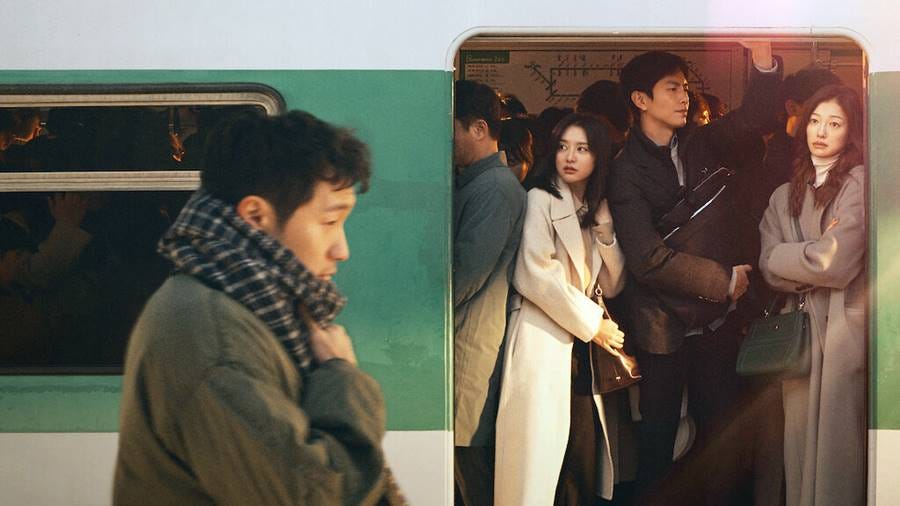
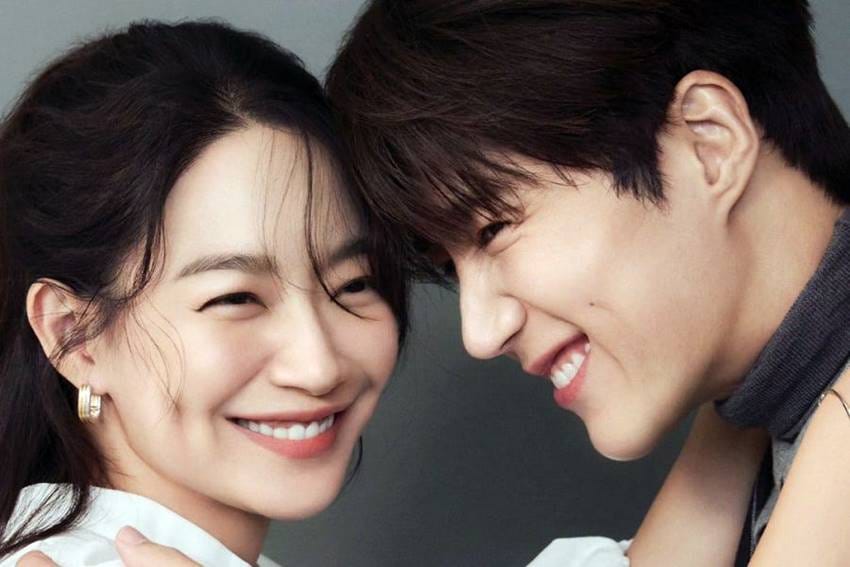
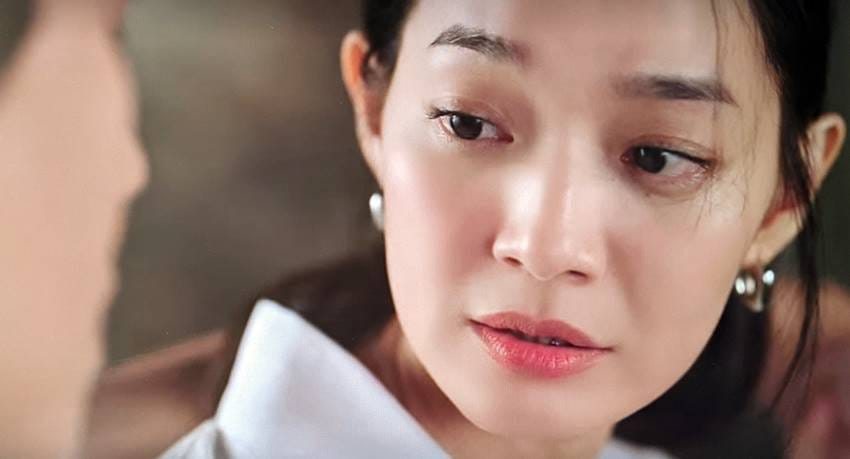
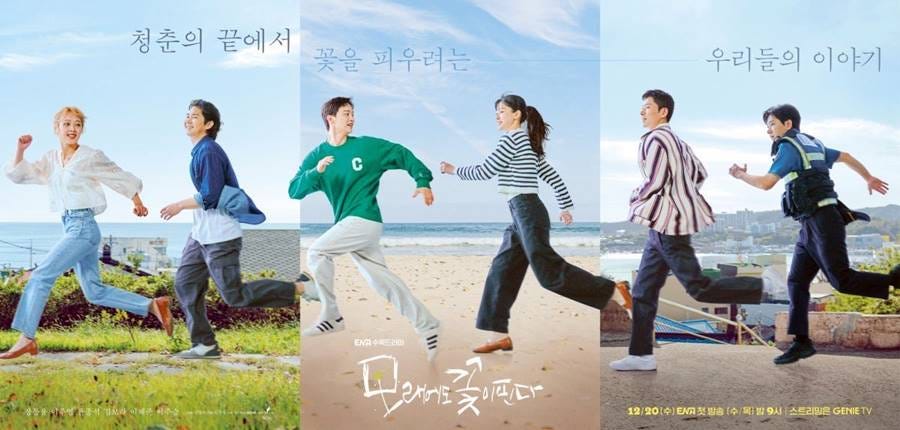
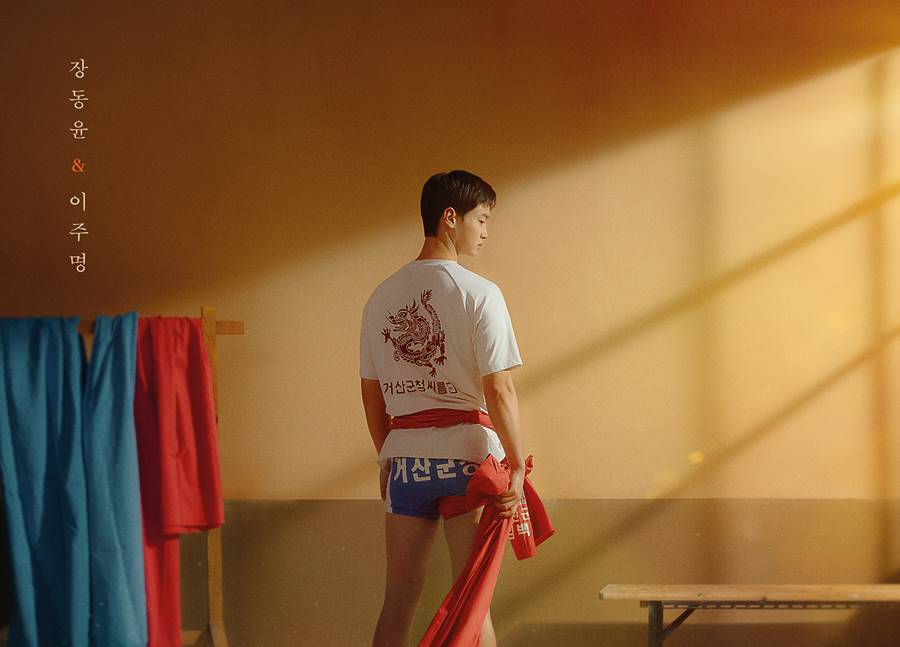
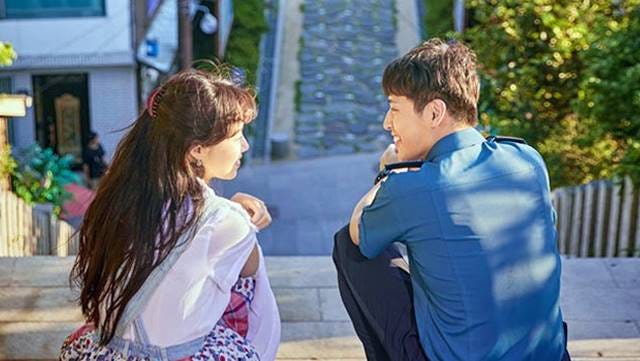
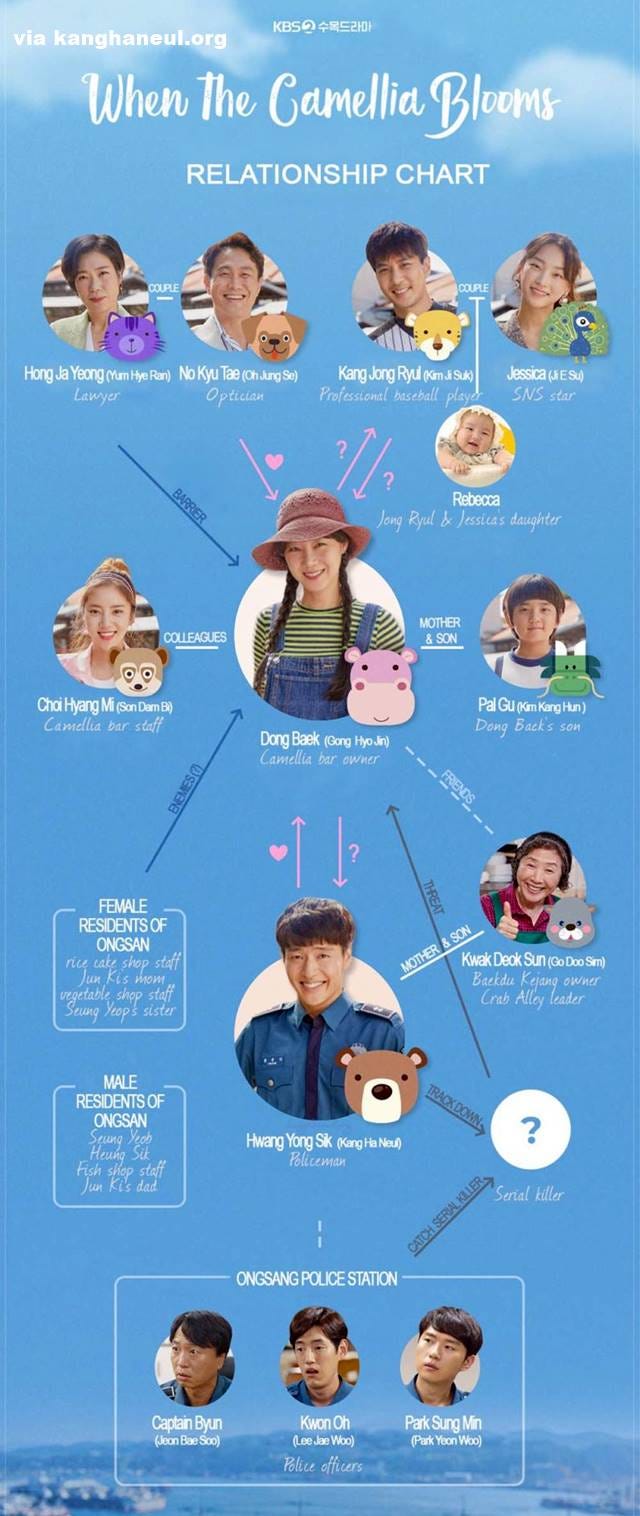
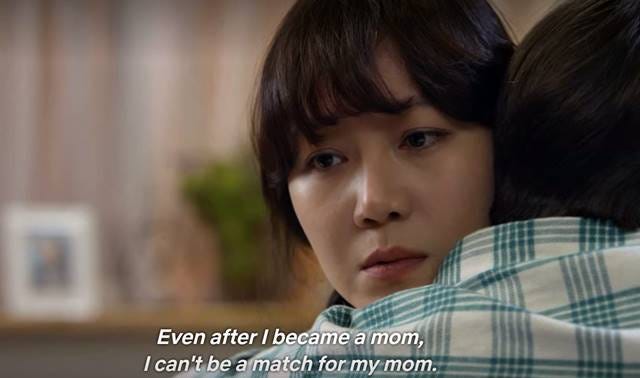
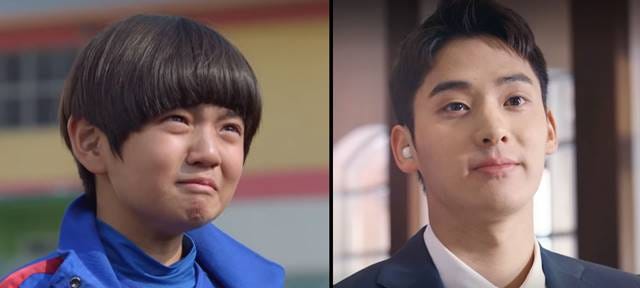
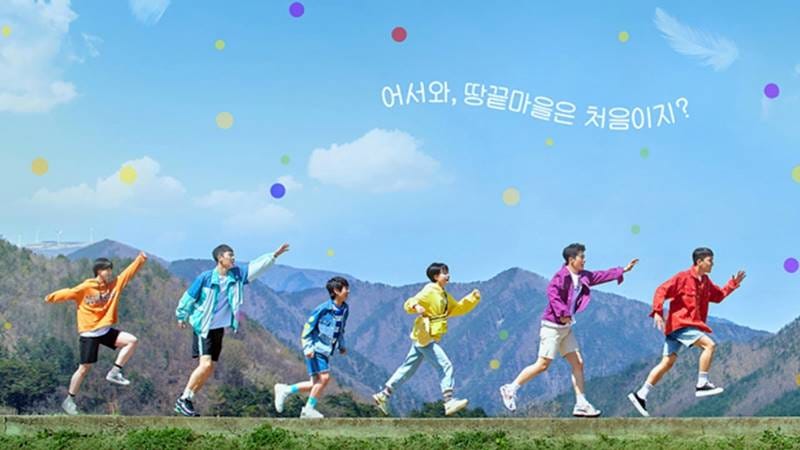
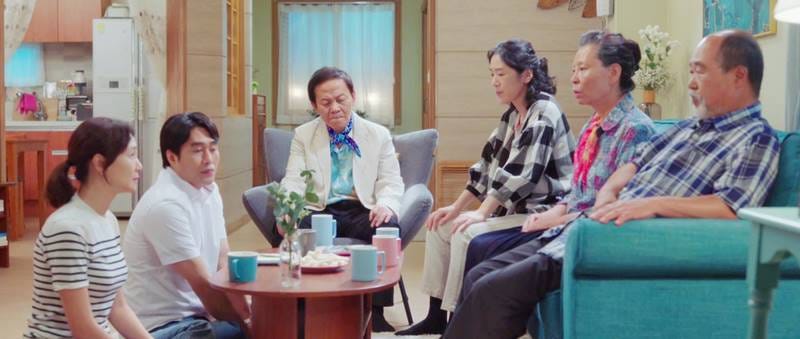
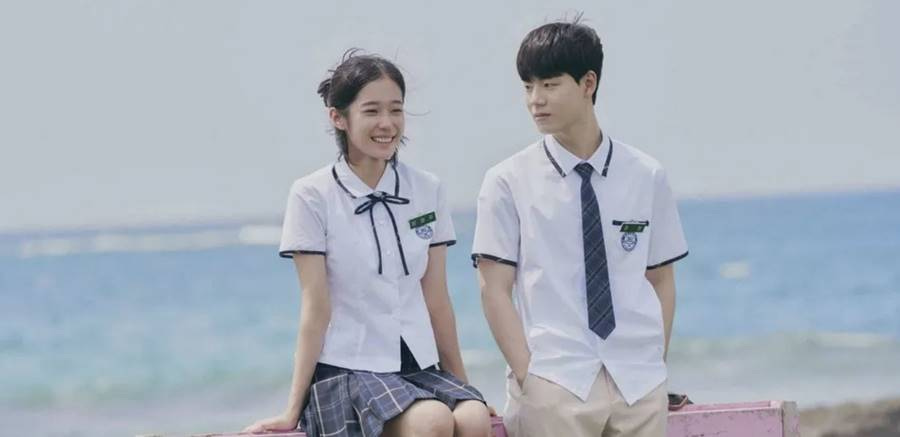
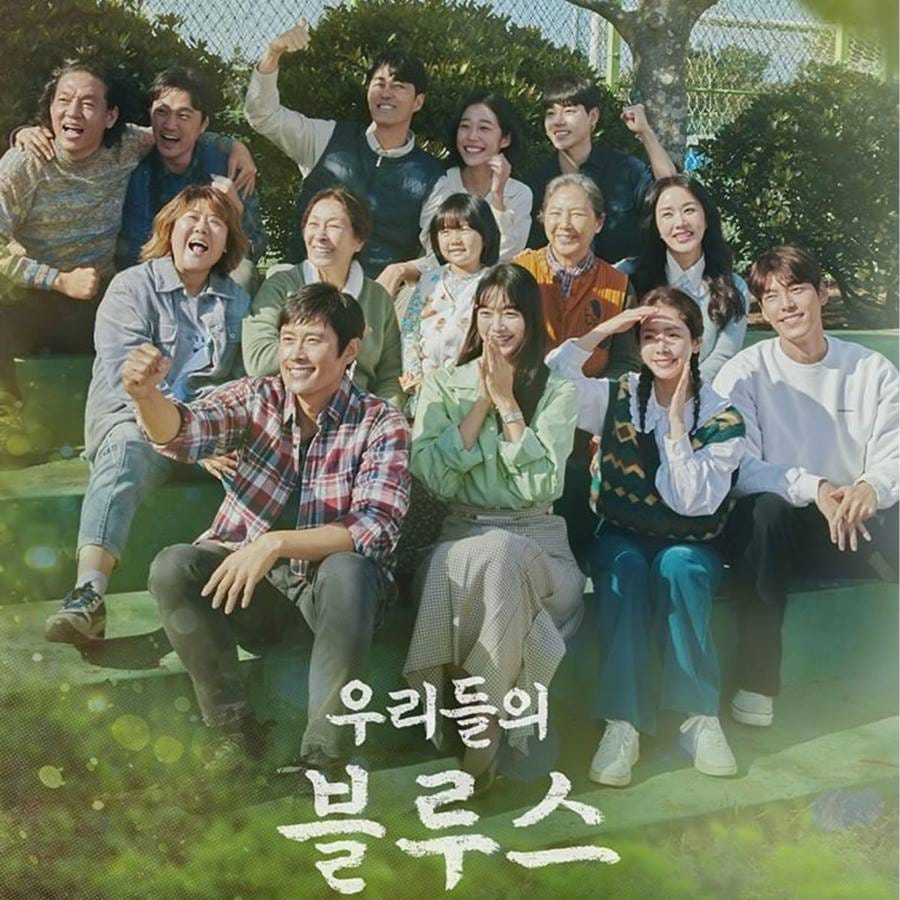
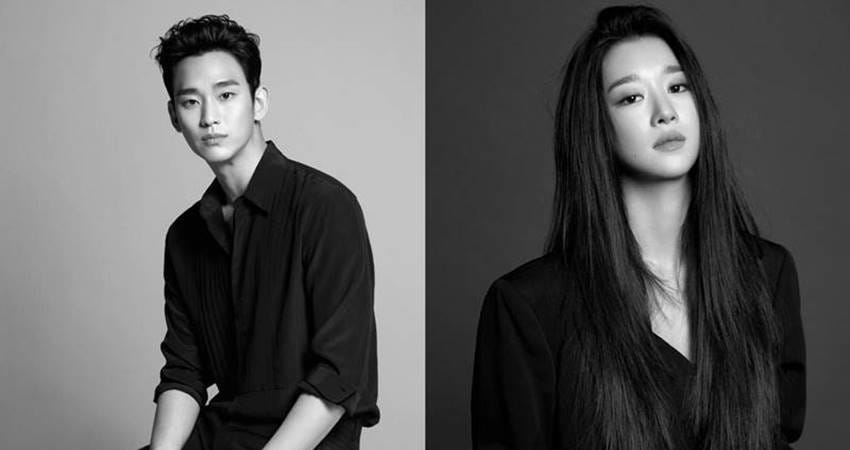
What a lovely trip down memory lane reading your newsletter. Watched them all and love them all too! My Liberation Notes and When the Camelia Blooms still stands in my top 10. Especially Camelia. As an adoptee who's story of her birthmother felt so akin to the one portrayed, I was gutted watching that episode of her reveal and backstory. After watching the series a second time, I also found myself realizing how much Dong Baek repeated the narrative of her abandonment, it was the mantra she had in her head and that felt oddly close to many adoptees. The lens through which you see your life will focus in a way that all evidence will point there if that's the way you need to see it....until you don't. I also loved that the story of the birthfather was included, the dialogue between him and his son; his grief and his inner conflict were all really well acted. I don't know if Korea felt this was comic relief, it was a relief he was human to me even if he was a superstar athlete. At the end of the day it's still a drama and yet not impossible. The best way to feel when watching a drama.
I love that you review both When the Camelia Blooms and Hometown Cha-Cha-Cha in the same article. Both were filmed in the same city of Pohang, and I see them as almost companion pieces. These are two shows that I wish had some crossover; like what if the cop in Hometown visits the station where the cop in Camelia works? or something like that. One problem is that the actor Lee Sang-yi is in both! That could be explained by being twins; or the baseball coach had a side gig as a food influencer that blew up into a show biz career! I just need these characters to all exist in the same universe! Even better: a sequel that combines characters from both shows.
Tonally, they're probably slightly different. Both are humorous, but in slightly different ways. I think I'm drawn ever so slightly to the more blackly comic tone of Camelia and it's, shall we say, very cutely intellectually-challenged protagonists, lol.
These were my comfort food during COVID, and they're the kind of shows that I wish I could live inside. I feel like I could navigate the tiny side streets, alleyways, and waterfront of Pohang, and know what restaurants and houses I'll find around every corner. (Of course, it's the illusion of filmmaking, because in reality many of the places depicted in the shows are quite far from each other.) I keep talking about setting, and these two shows do an excellent job of it. You never feel like any scene is filmed in a studio.